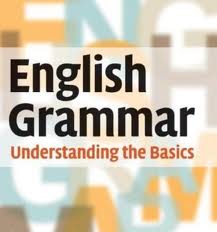ORIGINAL POST: I
have to share these “funniest analogies” with you. They came in an e-mail from
my friend. He got them from a friend, who got them from a
pen friend, who got them from… so they are circulating around.
My apologies if you have already seen
them.
The e-mail says they are taken from actual high school
essays and collected by
English teachers
across the country for their own amusement. Some of these kids may have bright
futures as humor writers. What do you think?
1. Her face was a perfect oval, like a circle that had its
two sides gently compressed by a ThighMaster.
2. His thoughts tumbled in his head, making and breaking
alliances like underpants in a dryer without Cling Free.
3. He spoke with the wisdom that can only come from
experience, like a guy who went blind because he looked at a solar eclipse
without one of those boxes with a pinhole in it and now goes around the country
speaking at high schools about the dangers of looking at a solar eclipse
without one of those boxes with a pinhole in it.
4. She grew on him like she was a colony of E. Coli, and he
was room-temperature Canadian beef.
5. She had a deep, throaty, genuine laugh, like that sound a
dog makes just before it throws up.
6. Her vocabulary was as bad as, like, whatever.
7. He was as tall as a six-foot, three-inch tree.
8. The revelation that his marriage of 30 years had
disintegrated because of his wife’s infidelity came as a rude shock, like a
surcharge at a formerly surcharge-free ATM machine.
9. The little boat gently drifted across the pond exactly
the way a bowling ball wouldn’t.
10. McBride fell 12 stories, hitting the pavement like a
Hefty bag filled with vegetable soup.
11. From the attic came an unearthly howl. The whole scene
had an eerie, surreal quality, like when you’re on vacation in another city and
Jeopardy comes on at 7:00 p.m. instead of 7:30.
12. Her hair glistened in the rain like a nose hair after a
sneeze.
13. The hailstones leaped from the pavement, just like
maggots when you fry them in hot grease.
14. Long separated by cruel fate, the star-crossed lovers
raced across the grassy field toward each other like two freight trains, one
having left Cleveland at 6:36 p.m. traveling at 55 mph, the other from Topeka
at 4:19 p.m. at a speed of 35 mph.
15. They lived in a typical suburban neighborhood with
picket fences that resembled Nancy Kerrigan’s teeth.
16. John and Mary had never met. They were like two
hummingbirds who had also never met.
17. He fell for her like his heart was a mob informant, and
she was the East River.
18. Even in his last years, Granddad had a mind like a steel
trap, only one that had been left out so long it had rusted shut.
19. Shots rang out, as shots are wont to do.
20. The plan was simple, like my brother-in-law Phil. But
unlike Phil, this plan just might work.
21. The young fighter had a hungry look, the kind you get
from not eating for a while.
22. He was as lame as a duck. Not the metaphorical lame
duck, either, but a real duck that was actually lame, maybe from stepping on a
land mine or something.
23. The ballerina rose gracefully en Pointe and extended one
slender leg behind her, like a dog at a fire hydrant.
24. It was an American tradition, like fathers chasing kids
around with power tools.
25. He was deeply in love. When she spoke, he thought he
heard bells, as if she were a garbage truck backing up.








